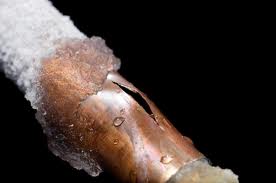|
Robert Robillard
Carpenter and Editor
"A full service renovation company sharing its knowledge and experience to share information and educate on remodeling best practices."
|
|
What's new at Concord Carpenter
Hi Guys,
This week I've been busy plowing snow - a lot of it! I'm so ready for spring!
The cold weather has brought us in the work shop to build AC plywood cabinets that will later be trimmed with rough sawn boards for the pool house project. The plywood boxes give us a nice platform to nail the rough saw boards to and also a place to fasten drawer slides to.
When it comes to building cabinets I'm old school. I was taught and still use tongue and dado joinery. A lot of my friends and Face-bookers have been asking why I don't use the Kreg Jig [pocket screws] or biscuits or Dominos.
Besides the fact that I feel the tongue and dado joint is a superior joint the fact is in some situations they may be right. Maybe I'm not paying attention to "faster and more efficient" ways of doing things.
All this got me thinking so I am going to build one cabinet with pocket joinery and compare the two methods. I'll let you know what I find out.
DEWALT 20 Volt XR Framing Nailer DCN692
Dewalt came out with a cordless, paper tape duel speed framing nailer that operates on battery only, no gas!
Being in the shop today meant testing out tools as well. We put the NEW DCN692 through some endurance testing to see how many 12 penny galvanized nails it would shoot on one batter charge. More on this nailer here.
Any guesses? I guess you'll have to wait for the review next week, were bringing it to the job site to do some "non-lab" testing.
Cold Weather Tips
What constitutes extreme cold and its effects can vary across different areas of the country. In regions relatively unaccustomed to winter weather, near freezing temperatures are considered "extreme cold."
Whenever temperatures drop decidedly below normal and as wind speed increases, problems occur.
Extreme cold is a dangerous situation that can bring on health emergencies in susceptible people, such as those without shelter or who are stranded, or who live in a home that is poorly insulated or without heat. Below are some reminders for you folks dealing with the extreme cold condition across the states. Chreck out
the articles below.
Heat Your Home Safely
If you plan to use a wood stove, fireplace, or space heater, be extremely careful. Follow the manufacturer's instructions as well as the home safety measures on page 3, and remember these safety tips:
- Use fireplace, wood stoves, or other combustion heaters only if they are properly vented to the outside and do not leak flue gas into the indoor air space.
- Do not burn paper in a fireplace.
- Ensure adequate ventilation if you must use a kerosene heater.
- Use only the type of fuel your heater is designed to use-- don't substitute.
- Do not place a space heater within 3 feet of anything that may catch on fire, such as drapes, furniture, or bedding, and never cover your space heater.
- Never place a space heater on top of furniture or near water.
- Never leave children unattended near a space heater.
- Make sure that the cord of an electric space heater is not a tripping hazard but do not run the cord under carpets or rugs.
- Avoid using extension cords to plug in your space heater.
- If your space heater has a damaged electrical cord or produces sparks, do not use it.
- Store a multipurpose, dry-chemical fire extinguisher near the area to be heated.
- Keep furnace vents free from snow - build a simple A-Frame [photo below]
- Protect yourself from carbon monoxide (CO) poisoning by installing a battery-operated CO detector and never using generators, grills, camp stoves, or similar devices indoors.
- Have a family house fire plan

Cook Safely
If there is a power failure:
- Use battery-powered flashlights or lanterns rather than candles, if possible.
- Never leave lit candles unattended.
- Never use a charcoal or gas grill indoors - the fumes are deadly.
- Never use an electric generator indoors, inside the garage, or near the air intake of your house because of the risk of carbon monoxide poisoning:
- Plug in appliances to the generator using individual heavy-duty, outdoor-rated cords.
- Do not use the generator or appliances if they are wet because of the risk of electrocution.
- Do not store gasoline indoors where the fumes could ignite.
- Installing a home generator
Frozen PipesExtreme cold can cause water pipes in your home to freeze and sometimes rupture. When very cold temperatures are expected:
- Leave all water taps slightly open so they drip continuously.
- Keep the indoor temperature warm.
- Improve the circulation of heated air near pipes. For example, open kitchen cabinet doors beneath the kitchen sink.
- If your pipes do freeze, do not thaw them with a torch. Instead, thaw them slowly by directing the warm air from
- an electric hair dryer onto the pipes.
- If you cannot thaw your pipes, or the pipes are ruptured, use bottled water or get water from a neighbor's home. As an emergency measure--if no other water is available-- snow can be melted for water. Freezing pipes - no heat.
 Concord Carpenter On YouTube
Be sure to check out our other videos at our Concord Carpenter YouTube Page
LIKE Concord Carpenter On Facebook
|